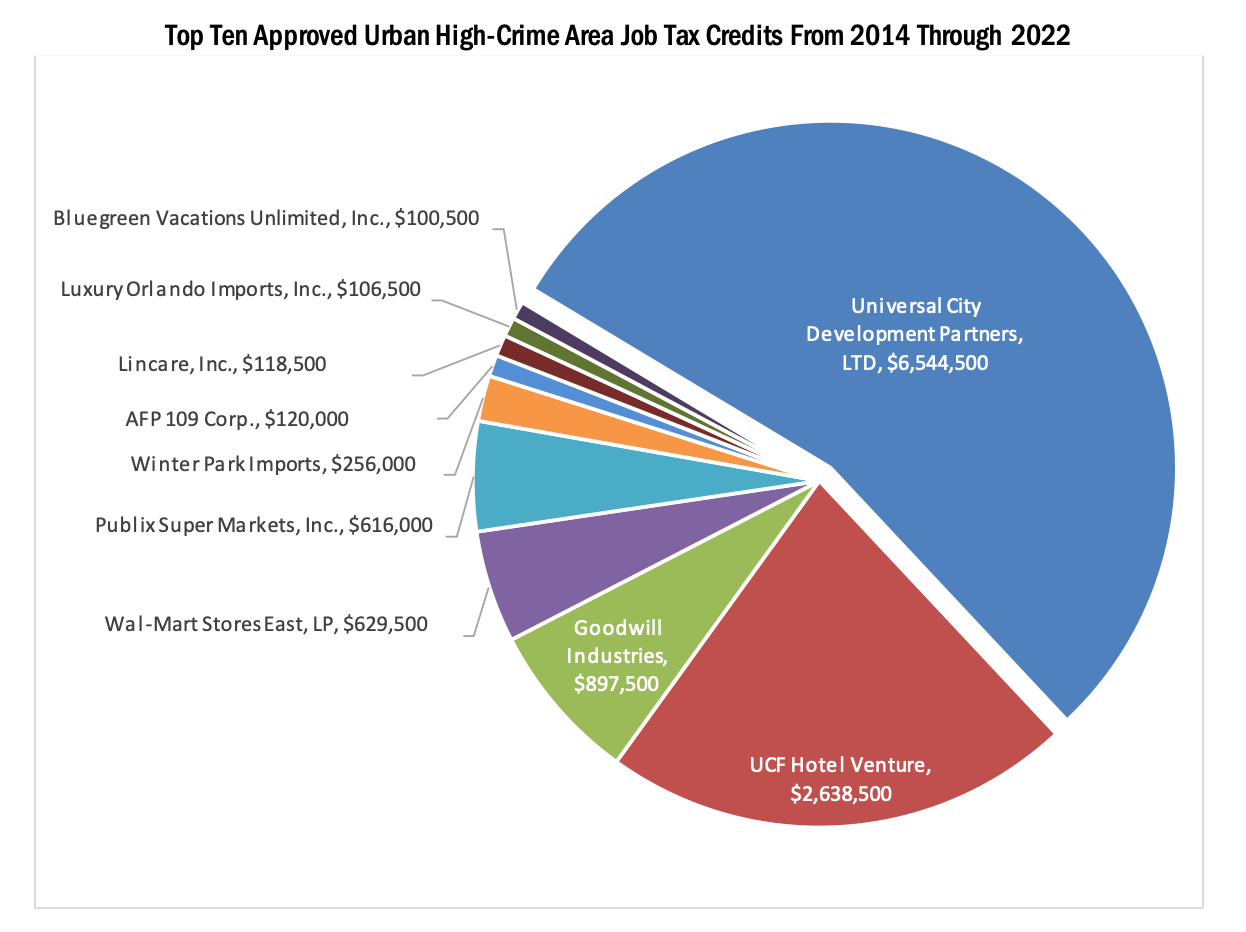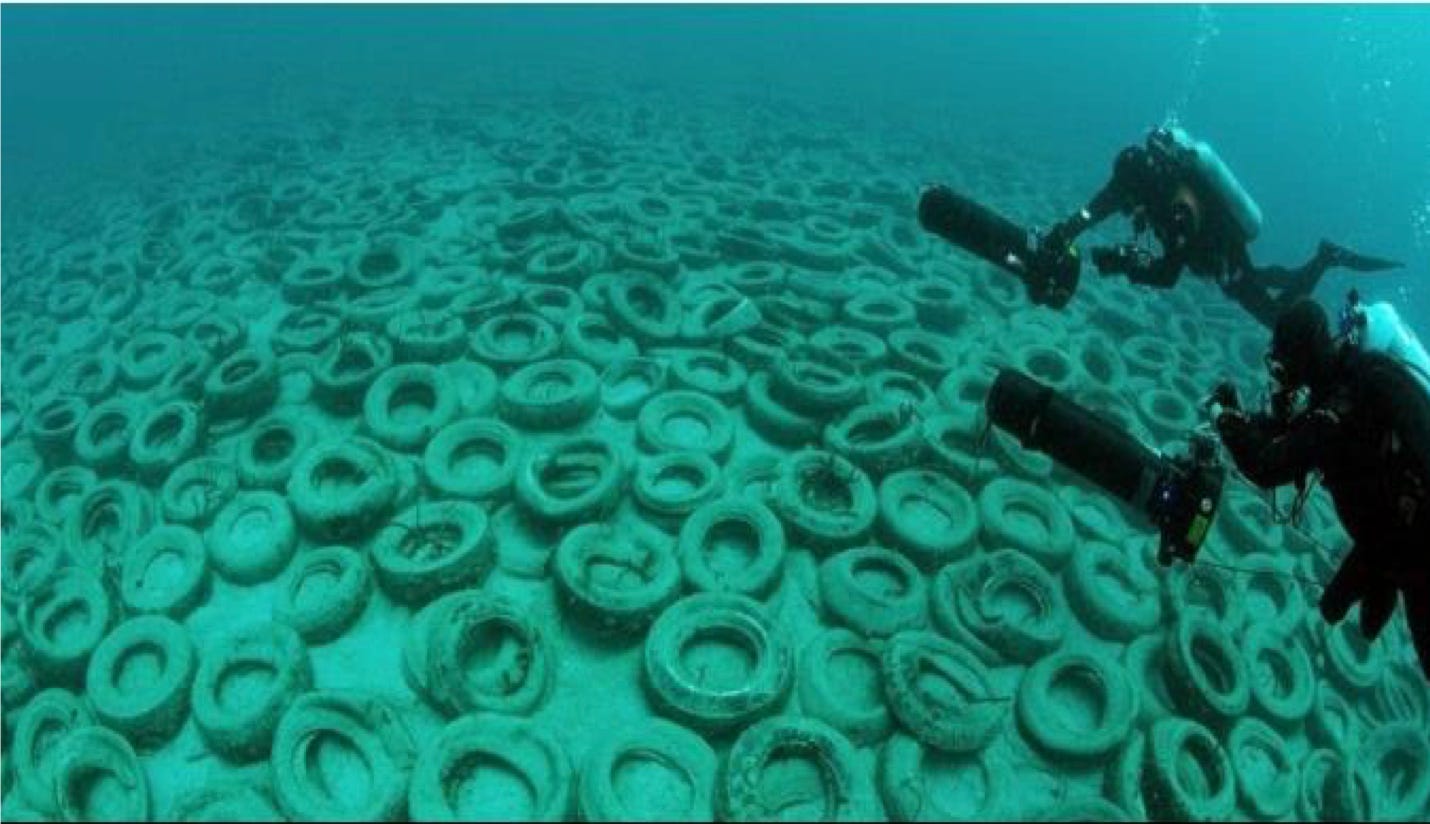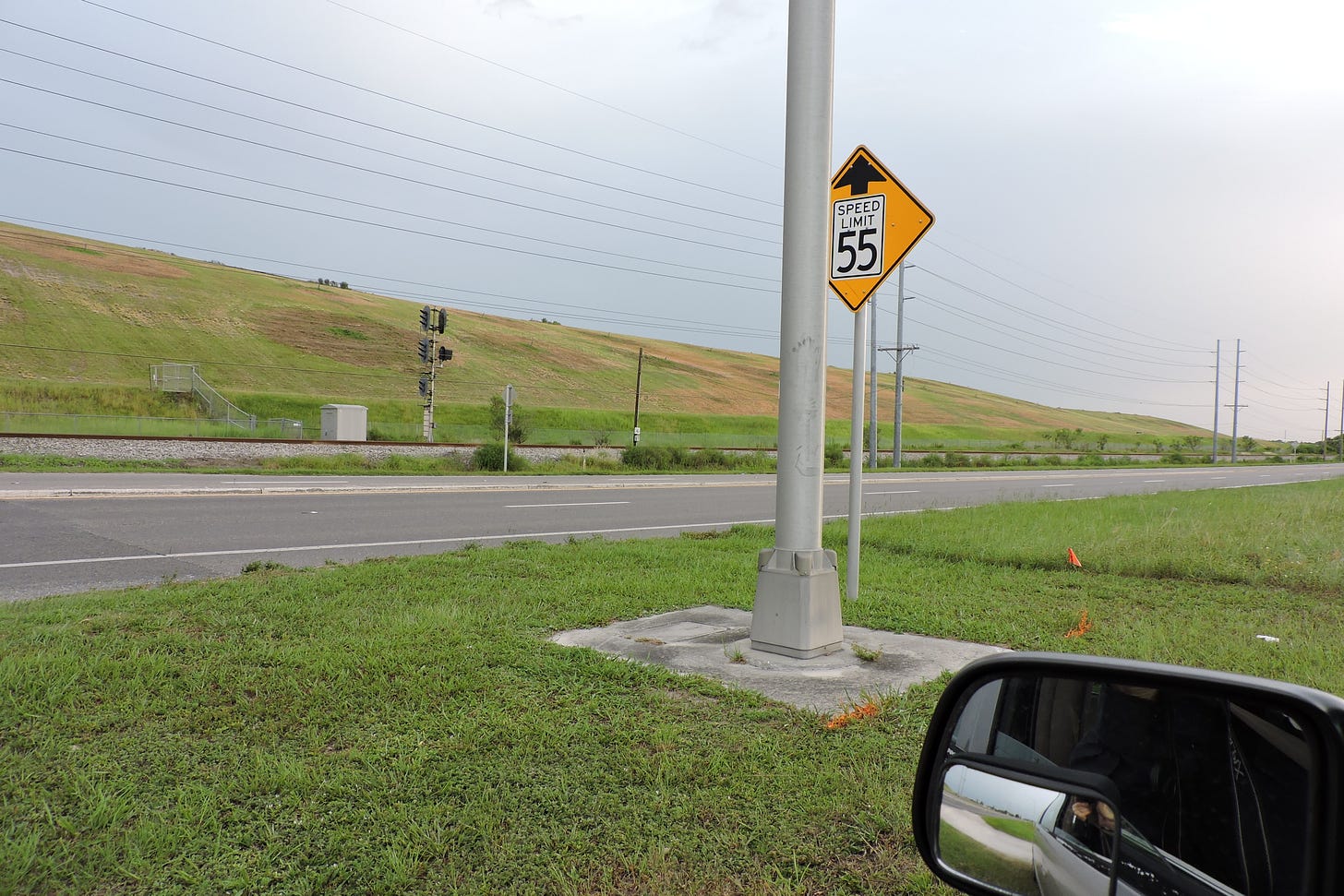
This is “The Trade Show,” a weekly collection of shorter news nuggets and stories from other outlets around the state and country about the special interest-driven issues that lawmakers spend most of their time working on. The name comes from something a mentor once told me before I covered my very first session of the Florida Legislature more than 20 years ago: “Ninety percent of what goes on up here is a trade show.” As always, our content here at Seeking Rents is free to all readers. But please consider a paid subscription to support our work, if you can afford one
About 25 years ago, Florida lawmakers launched a new program that was supposed to bring economic investment to neglected communities struggling with crippling levels of poverty and crime.
It didn’t work.
Instead, the program has become little more than a multimillion-dollar subsidy for one giant business: Universal Orlando, the theme-park resort in central Florida.
I first learned about this almost exactly 10 years ago. I reported in February 2013 that Universal and an affiliated hotel company had claimed more than $8 million worth of tax breaks using Florida’s “Urban High Crime Area Jobs Tax Credit.” That was nearly 40 percent of the money ever awarded through the incentive program.
It’s gotten even worse since then. New research by staffers in the Florida House of Representatives shows Universal has claimed another $9.2 million in tax breaks since 2014. That’s about two-thirds of all the money awarded through the program over that time.

(Note: Universal City Development Partners is a corporate name for Universal Orlando. UCF Hotel Venture is a corporate name for a joint venture between Universal and Loews Hotels.)
What makes this especially infuriating is that this is not a secret. I and other reporters have written about this over and over and over again for the past decade.
Even the lawmakers who helped create this program — which was championed primarily by Black lawmakers who represented some of the poorest pockets of Florida — have said that the tax break has not worked like they intended and that Universal has exploited it.
But while plenty of politicians have vowed to fix it — including former House Speaker-turned-New College of Florida president Richard Corcoran — nothing has changed. Florida lawmakers just sit there and let Universal take the money.
Maybe that’s because Universal and its parent company — cable giant Comcast Corp. — have made roughly $10 million in Florida campaign contributions since that first story in February 2013, according to a review of state campaign-finance records.
That includes more $4 million in donations to the state Republican Party, which controls the Legislature and the Governor’s Office. But it includes more than $850,000 in donations to state Democratic Party, too.
Universal’s donations also include more than $1.8 million in free hotel rooms, theme park tickets and food — much it funneled to Florida legislators and their families through the state parties and lawmakers’ personal political committees.
But hope springs internal.
There’s a bill moving through the Florida House of Representatives this spring that would eliminate the high-crime tax break. The legislation (House Bill 5) would also repeal a bunch of other outdated, ineffective and ill-advised tax incentives and abolish Enterprise Florida, the agency that helps companies squeeze taxpayer subsidies out of the government.
This bill is a heavy lift: There are many big businesses like Universal that feast off Florida’s incentive programs. And, like Universal, they spend a lot of time cozying up to lawmakers in both parties and showering them with campaign contributions.
But this is also a priority of new House Speaker Paul Renner (R-Palm Coast), one of the few lawmakers who has tried to fight this battle before. There’s also talk of splitting the parts of the bill that would eliminate broken tax breaks into separate pieces of legislation — which should, at least in theory, make them harder for lawmakers to oppose.
Time is of the essence here. Universal is building a new theme park in Orlando, which is expected to open in the summer of 2025. That means the company could be headed back to the high-crime kitty very soon.
Making state government a bit more accessible
Here’s another good idea: The Florida Senate recently passed Senate Bill 234, which would give $1 million to the state’s Division of Library and Information Services to develop a public website with an easily searchable database containing reports produced each year by state’s many executive agencies, water management districts, and other governing bodies.
The idea comes from Senate President Kathleen Passidomo (R-Naples), who told reporters that she thought of it after she became the Senate leader and her inbox was immediately filled up by state agencies sending her reports they are required by law to file.
“I got 20 or 30 a day. And they’re still coming in,” Passidomo told reporters earlier this month. “I thought to myself, ‘Who reads these?’…The public has no idea.”
“So If we put them in one place – if you’re interested in an environmental audit by DEP [Department of Environmental Protection], you can go find it,” she added. “Because I’m just delete, delete, delete. But now if I need something, I know where to find it…And the general public — and you guys — can do it, too.”
It’s a small step. But it’s one that will make state government a little more accessible to everyone.
Besides, wouldn’t you rather the Legislature spend $1 million on a project like this than on yet another tax break for Universal?
Rent-seeking in action
Alas, plenty of bad ideas keep moving, too. To wit:
Committees in both the House and the Senate advanced legislation (House Bill 715 and Senate Bill 1488) last week that would cut between $40 million and $100 million a year from education funding in order to give more money to stores that sell lottery tickets.
A lobbyist for 7-Eleven testified in support.
At the same time, committees approved bills (House Bill 1267 and Senate Bill 580 letting lenders that target people in financial trouble or who have poor credit histories nearly double their interest rates.
A lobbyist for OneMain Holdings Inc. testified in support.
Meanwhile, the Miami Herald reports that the electric utility industry is lobbying for legislation that would drive monthly power bills even higher.
Read: Legislators back a bill to let utilities convert methane gas, pass cost to customers (Miami Herald)
Time is a flat circle
In the 1970s, landfills in south Florida were overflowing with old tires. So someone came up with an idea: Tie two million of them together with nylon rope and steel clips and dump them into the ocean, a mile off the coast of Fort Lauderdale, to make an artificial reef.
They named it “Osborne Reef.” But some people just call it the Tire Reef.

This idea was, it turns out, exactly as dumb as it sounds.
The lashings eroded, and storms and currents scattered the tires. Within three years, they were strewn across more than 30 acres. Stray tires have damaged real coral reef. They continue to wash ashore in Fort Lauderdale.
Governments and activists have been trying to clean up this mess for more than 20 years now. The state of Florida alone has spent more than $6 million on tire removal. But as many as 1 million remain littered on the ocean floor.
So this session, Florida lawmakers are advancing bills (House Bill 641 and Senate Bill 546) that try to finally finish cleaning up the Osborn Reef mess. The bills give the state’s Department of Environmental Protection one year to come up with a comprehensive restoration plan.
The House version of the bill passed its second committee on Monday.
That very same day, separate committees in the House and Senate passed a couple of other bills that are much different — and yet kinda similar.
Those bills (House Bill 1191 and Senate Bill 1258) would let the Florida Department of Transportation take radioactive waste leftover from fertilizer manufacturing and try burying it in the beds of new roads.
Boosters are pitching the legislation as a potential use for phosphogypsum, a byproduct that gets created during the chemical manufacturing process that turns phosphate rock into fertilizer.
Phosphogypsum currently gets piled into ugly mountains known as “gypstacks,” which dot the landscape in west-central Florida — and which pose environmental hazards of their own. (See: Point, Piney.)

This idea is being pushed by Mosaic Co., the multibillion-dollar phosphate-mining giant that currently has lots of phosphogypsum piled up in gypstacks.
Now, these bills would only allow FDOT to test phosphogypsum in “demonstration projects.” It wouldn’t allow widespread use in road construction unless the federal government signs off first.
So it’s not exactly the same as immediately dropping 2 million tires into the ocean.
Then again, that once seemed like a reasonable idea, too.
“Ideas start out like it’s a good idea and then it turns into a tragedy,” state Sen. Linda Stewart (D-Orlando) said during a Senate hearing on the Osborne Reef bill earlier this month. “As responsible legislators, we need to be really careful on the new ideas that come forward to make sure that it doesn’t turn into a tragedy in the future.”
Three weeks later, she voted for Mosaic’s phosphogypsum bill.
A minor league labor deal could blunt a Major League lobbying blitz
Newly unionized minor league baseball players struck their first labor contract with Major League Baseball last week — a deal that more than doubles wages across all levels of the minors. It includes an especially big boost for those on the bottom rung: Salaries will jump from $4,800 a year to $19,800.
What’s more, this collective bargaining agreement should also mute any impact on minor leaguers from MLB’s attempt to force a bill through the Florida Legislature that would cut baseball players off from the state’s minimum wage.
To be very clear: MLB’s bill is still an awful idea. No industry should get a blanket exemption from one of the most basic protections we have for American workers.
And you can bet the minimum-wage carveouts won’t stop with baseball players.
Read: MLBPA, MLB agree to tentative deal on first minor league CBA (The Athletic)
Read: Minor leaguers ratify first collective bargaining agreement: What changes are coming? (The Athletic)
Designed to fail
Remember Florida’s designed-to-fail unemployment website that forced so many workers to wait months for their payments during the Covid-19 pandemic? Well, the state seems to have designed another intentionally ineffective system for consumers with complaints about their insurance companies.
Read: Here’s why Florida’s home insurance hotline is only open 3 hours a day (Tampa Bay Times)
The healthcare tsunami is about to hit
Your periodic reminder that Florida is about to start taking health insurance away from hundreds of thousands of Floridians — and that it remains one of the only states in the country that won’t expand access to Medicaid under the Affordable Care Act.
Read: Why 900,000 in Florida are about to lose Medicaid (Tampa Bay Times)
Read: Millions poised to lose Medicaid as pandemic coverage protections end (The Washington Post)
Read: Florida focuses on expanding kids’ health insurance, not Medicaid (Tampa Bay Times)
Read: Castor urges DeSantis to act before Medicaid provision ends Saturday (WUSF)
Who Ron DeSantis listens to
Emails show that top aides to Gov. Ron DeSantis worked with “a far-right group promoting debunked claims of widespread voting ‘irregularities’” on plans for a controversial new election-crimes office.
Read: Email shows far right voting fraud conspiracy group worked with top DeSantis aide (Sarasota Herald-Tribune)
Disney rolls DeSantis
So the Walt Disney Co. and its lawyers outsmarted Ron DeSantis and his lawyers, eh? The National Rifle Association knows how that feels.
Read: DeSantis’ board says Disney stripped them of power (Associated Press)
Read: Royal clause and King Charles III invoked in Disney vs. DeSantis board dispute (Orlando Sentinel)
Read: How Disney outfoxed DeSantis - and why it’s not all so funny | Commentary (Orlando Sentinel)





National reporters looking to understand what goes on in DeSantis land should look no farther than Seeking Rents. Stellar reporting as always.
I wish this was an April Fools joke. As always, thanks for your brilliant reporting